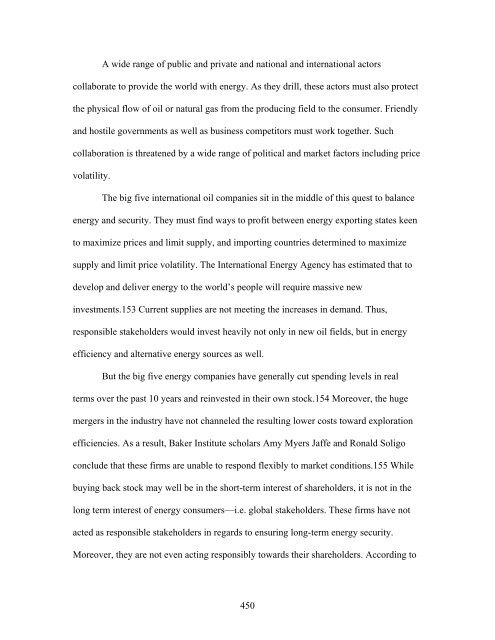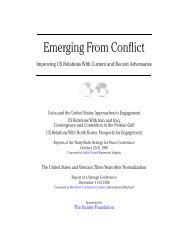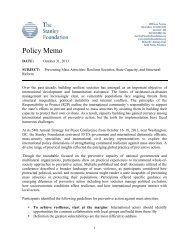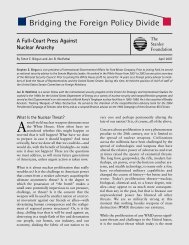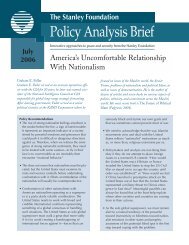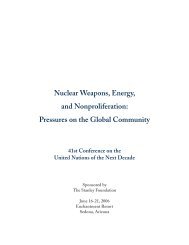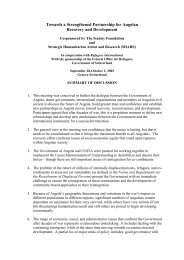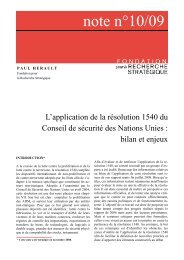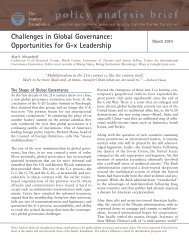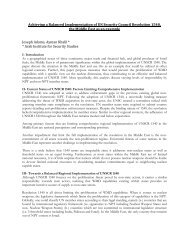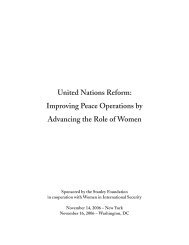444 By Susan Ariel Aaronson and David Deese With a reaction by ...
444 By Susan Ariel Aaronson and David Deese With a reaction by ...
444 By Susan Ariel Aaronson and David Deese With a reaction by ...
- No tags were found...
You also want an ePaper? Increase the reach of your titles
YUMPU automatically turns print PDFs into web optimized ePapers that Google loves.
A wide range of public <strong>and</strong> private <strong>and</strong> national <strong>and</strong> international actorscollaborate to provide the world with energy. As they drill, these actors must also protectthe physical flow of oil or natural gas from the producing field to the consumer. Friendly<strong>and</strong> hostile governments as well as business competitors must work together. Suchcollaboration is threatened <strong>by</strong> a wide range of political <strong>and</strong> market factors including pricevolatility.The big five international oil companies sit in the middle of this quest to balanceenergy <strong>and</strong> security. They must find ways to profit between energy exporting states keento maximize prices <strong>and</strong> limit supply, <strong>and</strong> importing countries determined to maximizesupply <strong>and</strong> limit price volatility. The International Energy Agency has estimated that todevelop <strong>and</strong> deliver energy to the world’s people will require massive newinvestments.153 Current supplies are not meeting the increases in dem<strong>and</strong>. Thus,responsible stakeholders would invest heavily not only in new oil fields, but in energyefficiency <strong>and</strong> alternative energy sources as well.But the big five energy companies have generally cut spending levels in realterms over the past 10 years <strong>and</strong> reinvested in their own stock.154 Moreover, the hugemergers in the industry have not channeled the resulting lower costs toward explorationefficiencies. As a result, Baker Institute scholars Amy Myers Jaffe <strong>and</strong> Ronald Soligoconclude that these firms are unable to respond flexibly to market conditions.155 Whilebuying back stock may well be in the short-term interest of shareholders, it is not in thelong term interest of energy consumers—i.e. global stakeholders. These firms have notacted as responsible stakeholders in regards to ensuring long-term energy security.Moreover, they are not even acting responsibly towards their shareholders. According to450


